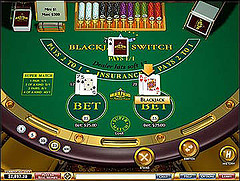Probably most people woke up last Saturday morning to the shock that a Member of Congress had resigned over some filthy instant message exchanges with an underage page. I wasn’t so shocked. Well, it’s about time, was my first thought.
No, I don’t have any inside dirt on former Rep. Foley’s peccadillos or those of any other Member. But I have done a lot of research into how the legal system treats instant message evidence and recently put forward the first real set of guidelines as to how it ought to. (Find my full analysis here.) One thing I learned: there are a lot of sickos on the Internet. (This is news?) And so it boggles the mind that this is the first high-profile instant messaging case.
Another thing I learned: plenty of the instant message evidence that makes it into courts is obviously forged junk. That doesn’t stop it from being incredibly persuasive, especially to juries.
A few bare text files–easily falsified by a ticked-off youngster–have proved enough to wreck Foley in the public’s eye (er, well, outside of his district, anyway) and send him into rehab and “crystalized recognition” and confession even if not quite accepting “full responsibility.” But now that the FBI’s on the case, Foley’s got to be wondering whether this evidence will stand up in court. There’s no easy answer.
And the answer isn’t foreordained, either. Instant message logs are about the least reliable evidence that a prosecutor can bring into a criminal court, and in this age of AIM, MySpace, and the like, they may be the most convincing to the jury, especially when the “crimes” committed took place solely online–an increasingly frequent occurrence. Defendants have a great incentive to try to keep this stuff out of the courtroom, and they’ve got ample legal tools to make that happen. But few have even tried because getting into the technology of IM can be daunting, and understanding the technology is necessary to make the argument that IM logs should be kept far, far away from the jury. There’s little persuasive judicial precedent, then, on what courts should do about IM evidence. Still, a lawyer who’s prepared to make the argument that IM evidence is junk may stand a good chance of getting the judge to agree.
It looks like the Foley camp is already planting the seed for a vigorous defense. Foley’s lawyer has been “requested by me to fully and completely cooperate regarding any inquiries that may arise,” but stories about the genesis and purpose of the now-famous IM logs are already rife. Certainly Foley and his team have done nothing to quell the rumors that the conversations were somehow part of a prank or game–in other words, that there’s some larger story going on that the IM chat logs, as now available, don’t reveal for one reason or another. Tampering? Could be.
Then again, his post-revelation behavior makes Foley look guilty, guilty, guilty, which in the current caselaw is more important than whether the proffered evidence is like completely bogus.
(And if you want to Digg this, please do.)


 The Technology Liberation Front is the tech policy blog dedicated to keeping politicians' hands off the 'net and everything else related to technology.
The Technology Liberation Front is the tech policy blog dedicated to keeping politicians' hands off the 'net and everything else related to technology.